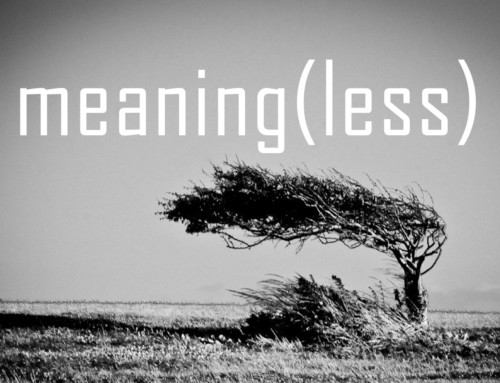The following article is by Scott Douglas entitled, “Complementarianism, Isn’t that where someone says something nice about you?”
 I remember it clear as day. I was taking our students verse-by-verse through Ephesians and we had come to chapter 5. I had given them the little handout sheets to fill in the blanks as we walked through the passage. I wanted to introduce them to a new term and concept they may have been unfamiliar with, so I left the entry as “God designed men and women to be complementarian.” Immediately I saw the puzzled looks and one brave high school girl raised her hand and asked “I thought that was when you told someone you liked how their outfit looked?”
I remember it clear as day. I was taking our students verse-by-verse through Ephesians and we had come to chapter 5. I had given them the little handout sheets to fill in the blanks as we walked through the passage. I wanted to introduce them to a new term and concept they may have been unfamiliar with, so I left the entry as “God designed men and women to be complementarian.” Immediately I saw the puzzled looks and one brave high school girl raised her hand and asked “I thought that was when you told someone you liked how their outfit looked?”
Perhaps your youth pastor has used that word before and you were confused as to what he was talking about. What I would like to do is to lay out a brief explanation of what it means to be a complementarian by explaining what it is and also what it is not. My goal is for you as a teenager to come away with a better understanding of how God has wired you as a man or woman, and your role in God’s great story of redemption.
For the purpose of this, my definition of complementarianism is: The belief system that recognizes the equal value of men and women in the image of God, but that also recognizes the unique roles and responsibilities that God has given to men and women: to men the charge to lead, protect, and provide; and to women the charge to nurture, care, and walk in submission to their husbands.
Complementarian Gender Role Myths
Let’s start by looking at some myths about complementarian gender roles:
“All women who believe that just walk around barefoot and pregnant” – Perhaps if you dislike shoes and love having babies this might be the case, but often this is meant to say that women are nothing but baby-makers who don’t have a brain, a job, or an education. Complementarianism is far from that! While we do affirm the value and joy of children, and believe Christians should have children, we do believe that women are capable of great things. Women should get an education (my wife just finished her PhD a little over a year ago for example), women can work outside the home, and women have the freedom to have a life. Many women have careers, platforms, and great ministries who also are complementarian (Mary Mohler, Mary Kassian, Nancy Leigh DeMoss for example). The big difference though is that for a complementarian woman, her primary responsibility and calling is to be a wife and mother. Everything else is secondary to that, including career goals and personal ambitions. Perhaps the best picture of this for me is after my wife received her PhD, her first act after that was to feed our 5 month old son and rock him to sleep. For her, it was all about being Mommy before being Dr Douglas.
“That kind of thing worked in the 1950s, but not anymore!” – Yes, it’s true that in the 1950s this was the predominant view of the family: the husband/father was the leader of the home, the wife was the submissive partner, and the kids all had their shirts tucked in and were home in time for supper. At least that’s what we saw on TV. Now the picture of the involved and responsible father has been replaced by the fat drunken idiotic representations of Peter Griffin and Homer Simpson, or the emotionally detached Ray Romano. The subtle shift from the father to the mother as the stable (and many times sane) member of the family corresponds to an increase of divorce, dysfunction, absent dads, deadbeat parents, and overall depression of culture. The big issue isn’t to go back to a Leave it to Beaver world and leave behind Jersey Shore, Buckwild, Teen Mom, and the ongoing train wreck the Kardashians provide. The goal of a biblical view of gender roles is to reclaim the family as God designed it to be: a place of stability, comfort, peace, security, and worship. Doing that requires us to follow God’s design for the family: mom and dad together and married, the dad committed to the leadership of the family, and the mom the gracious and supportive helper.
“This system says that men are superior to women!” – Genesis 1-2 make a shocking declaration against this myth: men and women are both in the image and likeness of God (Gen 1:27). Complementarianism says that men and women have equal value before God. Men aren’t superior, nor are women superior. Each is an image-bearer of God and therefore worthy of equal dignity, value, respect, and honor. No man can claim to be superior to a woman, and vice versa. Sure, I’m partial to being a guy (tanks are cool, I like football, and grilling meat is fun), but my wife likes being a girl (she enjoys pretty things, likes to smell good, and appreciates Gilmore Girls). Neither of us has more value or worth, we’re simply wired differently. Here’s something you can impress your youth pastor with: tell him that men and women are ontologically equal, but functionally unique. Basically, you’re telling him that men/women are equal in value and personhood, but have different functions. Expect a high-five or awkward side-hug in response.
“Biblical gender roles are chauvinistic” – There is a big difference in being masculine and being ‘macho.’ Masculinity is gracious servanthood and leadership, macho tells sexist jokes and expects the wife to ‘make him a sammich!’ Sadly I have known some guys who would rather wait until late at night for their wife to get home to fix them supper than to do something about it themselves. Side Note: Guys, learn to cook. Your wife will love you for it, and you will be able to survive your single years without eating Taco Bell everyday. Complementarianism is not an excuse for guys to sit around and burp and make bodily noises and expect to be taken care of by their wives/girlfriends. The right to do that disappears around the time you learn to use the potty by yourself – it’s fine if you’re 2 and burp and act selfish, it’s not if you’re 20 (or older). Complementarians reject any sort of idea of chauvinism or machismo, it’s not being a man, that’s (as Mark Driscoll says) being a boy who can shave.
“There’s no place for women in the church” – Sometimes people might look at passages like 1 Corinthians 14:33-35 and 1 Timothy 2:11-12 as evidence that those who hold to a complementarian view don’t allow women a place in the church. But that is simply not the case. We do believe that 1 Timothy 3 and Titus 1 do limit the pastoral role to qualified men, but women have a pivotal role in the church. In the New Testament we read about Lois and Eunice who are responsible for Timothy’s conversion, Priscilla who is part of a very influential ministry team with her husband Aquilla, Phoebe who is considered one of Paul’s most important supporters, Euodia and Syntyche who are two of the more important people in the Philippian church, and Dorcas who was seen as a very important disciple in the early church. Women can fill many important roles in the church, and can serve in a variety of capacities. Women can help lead worship, serve in nursery, teach children (which was their primary task in the early church, which was seen as very important! – they had the responsibility of passing on the faith to the next generation of early Christians), serve as prayer warriors, dedicate their lives to missions (Amy Carmichael, Lottie Moon, and Elisabeth Eliot), or whatever other gifting they might have. Women have a huge place in the church, and no church should discount the gifting of women to do great things. The limitation of the pastoral office should not be seen as oppressive, but as faithfulness to God’s Word.
“It makes it OK for abuse” – Some feel like the command for wives to be submissive to their husband makes it OK for husbands to abuse their wives. This myth makes me angry to read, and no one should ever stand for the physical/verbal/emotional/spiritual abuse of a wife. If you read Ephesians 5 and focus on what it means for husbands, it actually lays out a much harder responsibility. In the ESV translation, Ephesians 5:22-24 is 52 words (wives submit to their husbands), but 5:25-30 is 104 words! If anything, a complementarian view of gender roles demands more of men, and that their responsibility is to be a loving, protecting, providing husband. A friend of mine’s wife was told that if she went with her husband to seminary, she’d be a battered wife. In their marriage I have never seen a man more gracious, compassionate, and loving to his wife. And all of that flowed from his belief that his job as a husband was to take good care of his wife. Ladies, if you follow God’s design and desire for your life, I trust He will bring you a man who will love, cherish, and honor you – not beat, belittle, or destroy you.
Truths About Complementarianism
Let’s now look at some awesome truths about complementarianism and how it applies to you in middle or high school.
God’s design is glorious and good – Walking through Genesis 1-2 we make a few observations. For one, God is the one who created gender. God created Adam as male and Eve as female. He declares this to be ‘very good’ in Genesis 1:31. But we also observe something else really cool: Adam and Eve are both said to bear the image of God. That means something powerful: they’re both valuable and worthy as they both share the attributes of God. Neither is superior to the other. As we read on we see in Genesis 2 a description of life before Eve. Adam was given the task of subduing the land and naming the animals, but he has no counterpart. There is none like him to be found. So God fixes that by playing part artist and part matchmaker. He makes Eve out of Adam and sets the cosmic order in place. Men were made for women and women made for men. Genesis 2:24-25 says “Therefore a man shall leave his father and his mother and hold fast to his wife, and they shall become one flesh. And the man and his wife were both naked and were not ashamed.” God made it so that men and women were interdependent on one another. There is an inherent loneliness in being single. Part of that might be due to the fact you don’t shave and don’t clean your truck out guys. But that need for companionship is why God made the genders to be interdependent. We were built for community, for relationship, with one another. God makes it awesome to be a guy, awesome to be a girl, and awesome for those two to get together and get married. We should celebrate God’s design in creating men and women. You were made by God to be male or female, rejoice in that. Whether you’re a guy who likes explosions or a girl who likes candles, you’re fulfilling God’s design and desire for your life!
God designs roles for men and women – God declares Eve to be the helper for Adam in Genesis 2:18. From the beginning, God intended women to be the support system and helper for men. This idea of helper is not inferior though, the ESV Study Bible notes for this passage say the helper is “one who supplies strength in the area that is lacking in ‘the helped.’ ” My wife fills in my weaknesses, and I hers. Ephesians 5 will complete the picture of what these roles are for men and women. Women are to graciously submit to their husbands leadership as he follows Christ, and to respect her husband (Ephesians 5:22-24, 33). Men are to be the spiritual leaders of the home, charged with loving their wife and laying down his life for her, and has the goal of presenting her as a beautiful and pure Bride before God Himself. Needless to say guys, the burden of responsibility is on us. Man up. Again, the differences in roles are not to make one superior to the other. Men and women were created ‘equally different,’ with different roles, responsibilities and purposes. Those physical differences extend: God designed women to give birth and nurse, and along with that comes an overwhelming urge to nurture and care. God designed men as physically stronger, and along with that comes the urge to work and provide. We use the word ‘instinct’ to describe this sometimes, but it’s more than that. It’s part of God’s hard-wiring of our hearts and souls. Don’t run from it, but embrace it as part of your loving and good God’s plan for your life.
Remember, the God who created the universe and ordered the stars, planets, and Earth to be where they are is the same God who made you male or female. He did so as a loving, good, and gracious God. He did so in order that by fulfilling your God-given role and responsibility as a guy or girl you might bring Him glory. He designed guys and girls to complement one another, to go along with each other. He made guys distinct from girls so that guys wouldn’t be girls and girls wouldn’t be guys. Celebrate and embrace who He has made you to be: uniquely male or female. Don’t buy a lie that says it’s wrong to reinforce gender stereotypes.Guys, don’t be scared to be a guy and all that comes with it. Girls, don’t be scared to be a lady. Embrace the masculinity or femininity that God has given you.
A Word of Encouragement
1 Timothy 4:12 says this about being a teenager: “Let no one despise you for your youth, but set the believers an example in speech, in conduct, in love, in faith, in purity.” Teens, you have the opportunity to set an example before the entire church and an unbelieving world. You have the opportunity to show that you are serious about being biblical and living out your faith. Guys, you need to step it up. Turn off your video games, get a job, take some responsibility, and learn to be a man. Accomplish something with your life besides reaching Level 40 in some silly game. Girls, you can change your world by embracing modesty and purity in how you dress and act, and you can rock the world by declaring that your primary goal in life is to be a wife and mother. Recently on Sesame Street, Justice Sonia Sotomayor was featured in a segment telling young girls they could be whatever they wanted. Unfortunately, being a mom wasn’t one of those things. Girls, you can change that.
Lastly, this word goes especially to the ladies. Don’t let the one restriction to you in the church be seen as a negative. Instead, explore all the freedom that God does give to women to serve Him. Find your mission, find your passion, and find your calling. He might have something huge for you that goes much further than whatever you had in mind. I asked my wife about this and this is what she had to say about it: “when I was younger I always felt called to ministry and thought that it would be something public, or perhaps as a missionary. But as I got older and eventually got married, I started to see that desire to serve and be in ministry shift to support my husband. Once we had a child, everything changed even more. I began to see my primary ministry as my family and the responsibility God gave me to love and nurture our children.” Ladies, God has great plans for you, follow after Him, and let Him amaze you.
–
Scott Douglas serves as Student Pastor at Westside Baptist Church in Murray, Kentucky. He is married to Carrie Beth, and they have a son, Samuel. He is also a Ph.D. candidate in leadership at Southern Seminary.


